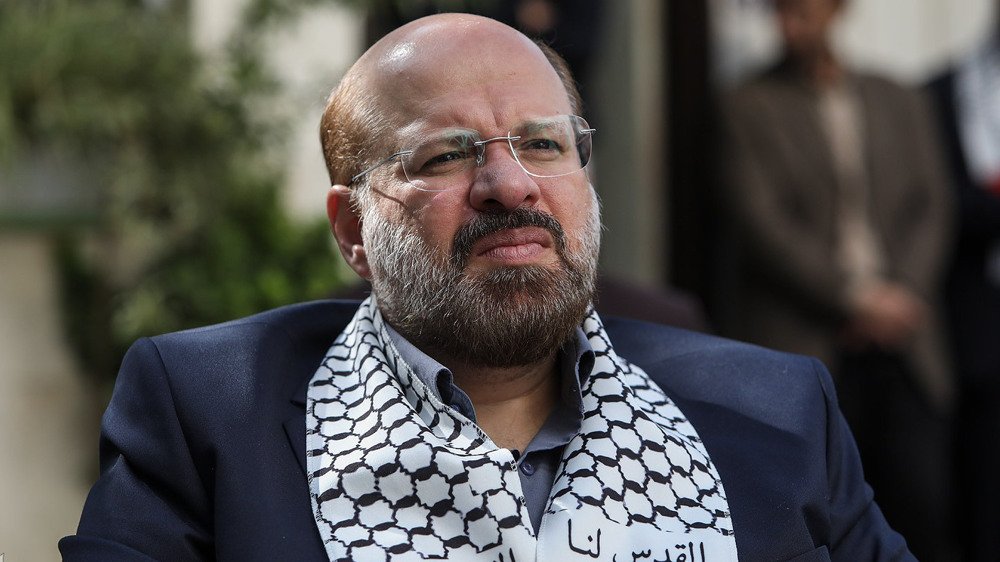Khaled Qaddoumi, the Hamas representative in Iran, explained in detail in an exclusive interview with the Gazete Duvar news website the motivation behind the Palestinian militant group’s surprise attack on Oct. 7 that led to the death of 1,400 Israelis and the taking of 240 hostages, prompting a harsh response from Israel in which more than 10,000 Palestinians have reportedly been killed.
Qaddoumi claimed in the interview that the operation was a response to long-standing grievances and injustices faced by the Palestinian people. He cited the continuous occupation and alleged war crimes by Israel, including the killing of innocent children and families, as the backdrop against which the Palestinian resistance felt compelled to act.
The Oct. 7 operation, according to Qaddoumi, was not a choice but a necessity imposed by circumstances, including the regular invasion of Al-Aqsa Mosque by Israeli law enforcement and attacks on Christian holy sites.
The interview highlighted the dire humanitarian situation in Gaza, exacerbated by a blockade that has led to shortages of medicine, potable water and electricity.
A significant portion of the interview focused on the treatment of Palestinian prisoners in Israeli jails.
Qaddoumi mentioned the presence of children and individuals sentenced to decades-long terms and the existence of what he referred to as “numbered cemeteries” for deceased prisoners whose bodies are not returned to their families. He argued that the taking of Israeli hostages was a measure to facilitate a prisoner exchange and secure the release of Palestinian prisoners.
Qaddoumi criticized the international community for its perceived inaction and called for diplomatic pressure on Israel to end the occupation. He also appealed for regional solidarity and called on neighboring countries to follow the example of countries such as Bolivia and Colombia, which have severed their relations with Israel in protest. He emphasized the need to open the Rafah border crossing for humanitarian aid and called for a humanitarian ceasefire.
Qaddoumi strongly criticized the United States, accusing it of hypocrisy and involvement in the conflict through its support of Israel.
He called for the cessation of oil exports to Israel, describing this as an important means of exerting pressure in response to the ongoing conflict.
Qaddoumi emphasized the strategic importance of oil exports to Israel, pointing out that Israel imports around 300,000 barrels per day, covering a large part of its energy needs. He argued that most of this oil, which comes from Central Asian and African countries, should be cut off in protest against Israel’s actions in the Palestinian territories. He said that such measures would force Israel to reconsider its position and could possibly lead to a cessation of hostilities.
Despite the pro-Palestinian rhetoric of Turkish President Recep Tayyip Erdoğan, who publicly condemned Israel’s actions in Gaza as a war crime and supported Hamas by referring to them as “liberators,” the Baku–Tbilisi–Ceyhan pipeline, which runs through Turkey and is crucial to Israel’s oil supply, covering around 40 percent of its annual oil consumption, has remained in operation. This economic engagement continues even as diplomatic personnel are recalled and political rhetoric increases.
Canada, the European Union, Israel, Japan, Australia, the United Kingdom and the United States label Hamas as a terrorist organization. New Zealand and Paraguay classify only its military wing as such. Brazil, China, Egypt, Iran, Norway, Qatar, Russia, Syria and Turkey do not consider Hamas a terrorist organization.
NATO member Turkey’s Western allies have time and again criticized what they see as the government of President Erdoğan providing a safe haven for Hamas officials and members.

